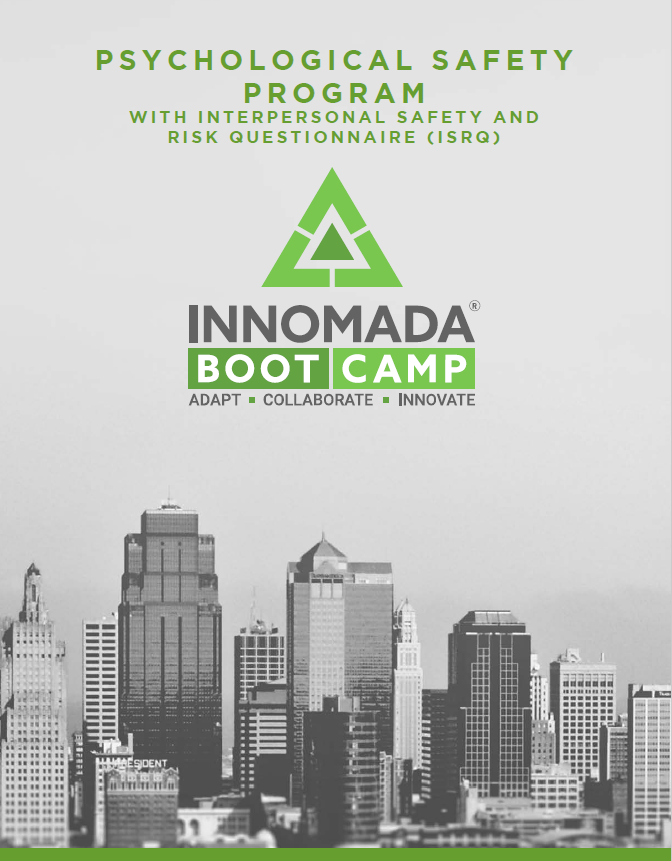Psychological Safety is the number one factor for group success.
Google conducted a study of what led to desired results amongst 180 internal Google teams called Project Aristotle (PDF download). The research concluded that the most critical element for having high performing teams was Psychological Safety.
The Innomada Psychological Safety Program is a virtual, independent, and time-effective way to help an individual or a group understand, measure, and take action on Psychological Safety.

The program includes:
- 17 online video modules
- Editable program workbook with exercises
- Measurement via the Interpersonal Safety and Risk Questionnaire (ISRQ)
- Assess your group
- Assess your personal preferences
- Over 50 tips on how to improve Psychological Safety
- Personalized Action Plan
We describe Psychological Safety as how someone filters and decides what (and if) they share with others. This relates to their observations, ideas, challenges, feelings, and personality. The higher the safety I feel, the more authentic thoughts I will share. The lower the safety I feel, the more guarded or filtered my sharing will be (or I won’t share at all).
In teams or organizations with high Psychological Safety, people speak up, take risks, hold each other accountable, learn from challenges, adapt to scenarios, have positive motivation, and grow together for optimum performance.
In teams or organizations with low Psychological Safety, people hit the mute button (they won’t share what they are thinking), there will be minimal discussion on the good and bad that takes place in a scenario (lack of learning from experience), negative behaviors will go without accountability, the group will have poor interpersonal dynamics, and there will be a weaker collective effort.

